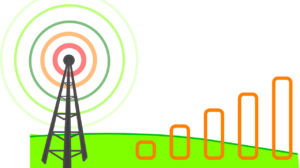Since the debut of the pandemic, we’ve been talking even more than usual about fake news, misinformation, gaslighting, and all the other pretty concepts that essentially mean we live under the impression that we know everything when we really know nothing.
But this is nothing new. In 2016, we defined a “novel” concept – post-truth. Here’s a quick definition if you’ve never stumbled upon it before: “the disappearance of shared objective standards for truth”. In other words, if something is my opinion, you can’t deem it wrong. It’s just an opinion.
That’s all fine and dandy until everything becomes a matter of opinion. Equality, racism, gender identity, health – they are all now “matters of opinion”.
Again, it’s not new. It’s not even as new as 2016. It goes way back. The same debates we have today about COVID-19 treatment and vaccines happened during the Spanish flu pandemic – that was 100 years ago.
The 1665 plague in London coincided with the rise to fame of the so-called “news sheets” published by a government censor. These early tabloids claimed that there were far fewer deaths than the authorities reported and that eating raisins could cure you. They also printed some predictions about the plague’s evolution. These predictions were based on astrological charts.
Sound familiar?
Were they right about the raisins? My opinion is that they weren’t. But then again, yours could be different and this clash doesn’t bring us any closer to the truth. At best, if this is a moderately aggressive discussion, we could agree that each of us has their own truth. This is the unsettling power of post-truth: its constructs are, in fact, parallel to reality, even when some of them happen to be right.
It’s been more than three centuries since then and very little has changed. But while misinformation isn’t new at all, the speed at which it spreads is much higher. This is what makes it more visible and what gives the impression that it’s more pervasive than it used to be.
But why do we fall for it?
What makes us such easy prey for shiny alt-facts?
Let’s Make Everything Easy, Shall We?
Education is a fundamental right – and that’s pretty amazing! Year after year, more and more children around the world receive education. That’s great progress.
Do you know what’s not so great, though?
The way we’ve trivialized education. Commoditized education isn’t the same as better access to education for everyone.
As children in school, we’re taught to be ever-curious, challenge, research, and learn more. As adults, we go to YouTube to get the facts.
See the dissonance?
A few months ago, I was bombarded with an ad that said something along these lines: “successful entrepreneurs read four books every week. Get the summaries of the best executive books and read four books in two hours.”
There are so many fallacies here! The first one is one of my all-time favorites: correlation does not equal causation. Are successful entrepreneurs successful because they read four books every week? That’s what the ad infers but, of course, there’s no proof of that.
Then there’s the assumption that I could be as successful as them if only I had the time to read as much as they do. Because, of course, I’m even busier than Bill Gates, but somehow I managed to find the time to watch this 20-second ad. Lucky for me because it’s obviously the path to success.
What rubs me wrong the most, however, is the fact that I can cut corners with just $5 per month. Who has time to read entire books? Except for the super-rich, of course!
It’s promises like this one that make us think that education can be condensed. That we can skip the nitty-gritty of it all and still be informed and right about everything.
It’s this kind of belief that gave birth to concepts like edu-tainment – learn AND have fun at the same time. What’s not to like there?
Who’s an Authority and Who’s Not?
The trivialization of education has bred another puzzling fact: the appeal to authority fallacy applies to…everyone. A YouTube influencer thinks that the world is led by reptiles? He must be right because he’s got 1 million followers, so he’s an authority.
We’ll eagerly buy the beer that a football player endorses. No issues there. What’s worrisome is that we’re equally eager to buy the healthcare products that actors, singers, or football players endorse. $120 stickers that cure …pretty much everything? Shut up and take my money, wellness-brand-created-by-a-pretty-actress!
We know that they’re not doctors and the marketers and advertising agencies who cast them in these roles know it too. But they also know that their appearance in a commercial will cause a spike in sales.
What marketers know best is that misinformation is easier to spread when it’s likeable. When it’s easy to digest. And what’s easier to digest than celebrity endorsement?
It’s almost funny (were it not so deadly serious) to see intelligent grown-ups asking their doctor to prescribe a certain drug for migraines just because their favorite celeb endorsed it. Is it an OTC drug? Well, that’s even better – we can completely by-pass the visit to the doctor. After all, what do they know? Were they ever on TV?
Sure, they spend decades learning how the human body works, but Sharon next door learned all that in a 15-minute YouTube video last week, so it’s not that big of a deal.
Should We Challenge Authority?
If you’ve been paying attention thus far, you’d be right to conclude that, in order to prevent the misinformation plague from spreading even further we should do two things:
- Forego the “easy” way and educate ourselves in a time-consuming but far more effective manner and
- Choose our information sources (or the authorities we look up to) wisely.
While the first one is not easy, but it’s definitely doable, the second one is a bit more nuanced. Blindly trusting authority isn’t the answer to everything, irrespective of said authority’s credentials.
One of the chapters in Robert Cialdini’s book, Influence, speaks precisely of that – of how easy it easy to succumb to authority. A Harvard University study cited that 10% of cardiac arrests in hospitals are attributable to medication errors.
Why?
Because the nurses and the pharmacists who delivered the drugs never thought to question the doctor’s directions. Even when they saw that the dosage was too high or that two or more drugs on the same prescription should never be taken together, they didn’t bat an eye.
The patients didn’t either. This mindless deference led to a lot of deaths but also to some funny situations, like the case of the rectal earache. When one patient came to the emergency room with an ear infection, the doctor on call was overwhelmed (as it happens when most medical errors take place). He prescribed some drops for the patient but, instead of writing that they were to be applied in the right ear, he hastily scribbled “R ear”. Rear.
The nurse promptly delivered the drops in the patient’s anus without even wondering how they could cure an ear infection. The patient complied, too.
Conclusion
When something seems too easy, you’re probably doing it wrong. If an electrical engineer needs at least four years of education to be able to design a battery charger, it’s a bad idea to try and design the wiring in your home after watching a YouTube video.
When you feel like blindly following an authority’s advice, ask yourself if they are truly an authority on what they’re advising you. And when you feel like something’s off, check again. Or get a second opinion.
I’d say “do your own research” to sum all this up. But this phrase has been used and abused ad nauseam until it began to mean “watch a quick video on it.”





